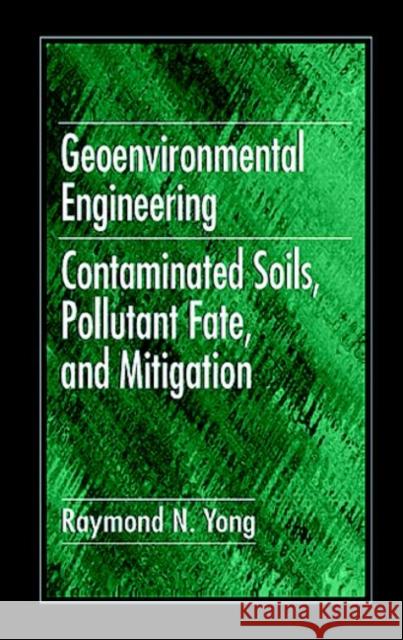Geoenvironmental Engineering: Contaminated Soils, Pollutant Fate, and Mitigation » książka
Geoenvironmental Engineering: Contaminated Soils, Pollutant Fate, and Mitigation
ISBN-13: 9780849382895 / Angielski / Twarda / 2000 / 320 str.
Why do some contaminants remain in soils indefinitely? How much of a threat do they pose to human health or the environment? The need for effective and economic site decontamination arises daily. Geoenvironmental Engineering: Contaminated Soils, Pollutant Fate, and Mitigation discusses why soils remain contaminated, focusing on the development of the factors, properties, characteristics, and parameters of soils and individual contaminants.
Subjects covered include the basic properties of soils affecting accumulation of contaminants, long-term retention of contaminants and their fate, including the development of intermediate products. The author emphasizes the factors, interactions, and mechanisms important in the bonding and partitioning process. He provides the groundwork for determining the fate of pollutants in soils and sediments and their mitigation.
Geoenvironmental Engineering: Contaminated Soils, Pollutant Fate, and Mitigation focuses on why soils and sediments remain contaminated, not how they became contaminated in the first place. You will understand why specific contaminants remain in soils and sediments, how much of a threat they pose to human health and the environment, and what steps to take for mitigation. With this information you can determine the extent of the contamination of soils and sediments, how long they will remain a threat, and what methods to use for their remediation.
Why do some contaminants remain in soils indefinitely? How much of a threat do they pose to human health or the environment? The need for effective and economic site decontamination arises daily. Geoenvironmental Engineering: Contaminated Soils, Pollutant Fate, and Mitigation discusses why soils remain contaminated, focusing on the development of the factors, properties, characteristics, and parameters of soils and individual contaminants.
Subjects covered include the basic properties of soils affecting accumulation of contaminants, long-term retention of contaminants and their fate, including the development of intermediate products. The author emphasizes the factors, interactions, and mechanisms important in the bonding and partitioning process. He provides the groundwork for determining the fate of pollutants in soils and sediments and their mitigation.
Geoenvironmental Engineering: Contaminated Soils, Pollutant Fate, and Mitigation focuses on why soils and sediments remain contaminated, not how they became contaminated in the first place. You will understand why specific contaminants remain in soils and sediments, how much of a threat they pose to human health and the environment, and what steps to take for mitigation. With this information you can determine the extent of the contamination of soils and sediments, how long they will remain a threat, and what methods to use for their remediation.











